Issue 111 : 14 August 2022
Talofa Lava, Kia Orana, Malo E Leilei, Tena Koutou, Hello ...
... and welcome to the latest issue of “For The Love Of The Game”, the official e-zine of the New Zealand Amateur Sport Association Inc., founded in Wellington, New Zealand in 2017.
If you have any feedback on this issue, ideas for future articles, or would like to contact the Editor, please click here. And, you are invited to forward the e-zine to others you know, who may be interested in reading it. An archive of earlier editions of the e-zine can be found here. For those who follow Twitter, you can also follow the Association, @AmateurSportNZ.
If you are interested in applying for membership of the Association, please click here.
The Association congratulates Albert Archibald Jelley CNZM, OBE (born on 13 August 1922) who celebrated his 100th birthday yesterday. "Arch" (as he is known) began his illustrious athletic career at Dunedin's "Mornington Harriier & Amateur Athletic Club" in the early 1940's, becoming a successful coach of 20 athletes who've represented New Zealand.
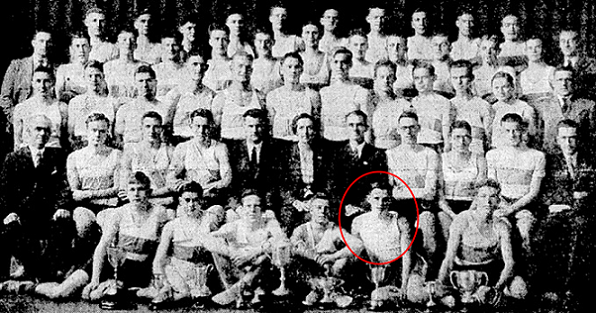
(Arch Jelley, circled, as a member of Dunedin's Mornington Club in 1940)
Over 100 Community Sport Entities Dissolved In August ...
One third (103) of the entities dissolved by the Registrar of Incorporated Societies on 4 August, were community sport organisations. In descending order, Rugby Union (incl. Kurow RFC, the “home” club of Richie McCaw), Netball (incl. Naenae Collegians), Squash (incl. Manurewa Squash Racquets), Hockey (incl. Hockey Marlborough), Football (incl. Whanganui Football), Golf (incl. Burnham Golf Club), Rugby League (incl. West Coast Rugby Football League) and Swimming (incl. Harbour Capital Masters Swimming), accounted for half of the total.
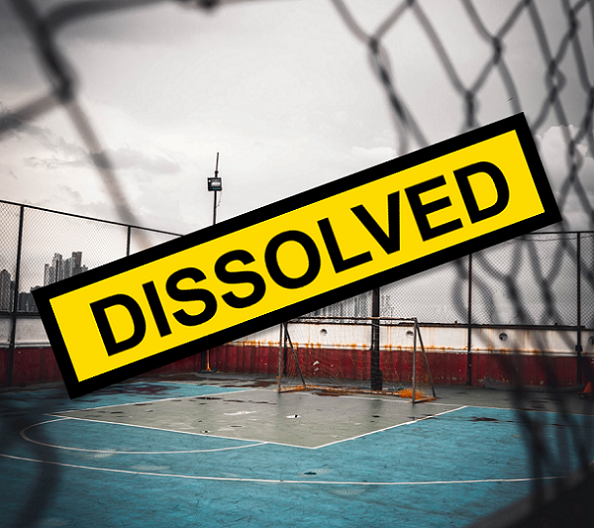
(Nearly 300 community sport entities have lost their incorporated status in two months)
This month’s dissolutions follow hard on the heels of the 192 incorporated sport entities dissolved by the Registrar of Incorporated Societies in July. Basketball, Bowls, Cricket, Equestrian, Football, Hockey, Martial Arts, Motor Sport, Netball, and Rugby (union and league) were among the top codes affected last month. Whether voluntary or involuntary, the dissolution of nearly 300 community sport entities in the last two months, is another worrying sign of the less than robust health of our national sport club community.
Manawatu Seminar On Thursday, 18 August ...
If you are a member of a sport club in the Manawatu region (or adjacent regions), you are warmly invited to attend a seminar on the Incorporated Societies Act 2022 being hosted by Sport Manawatu on Thursday, 18 August. Details are below.
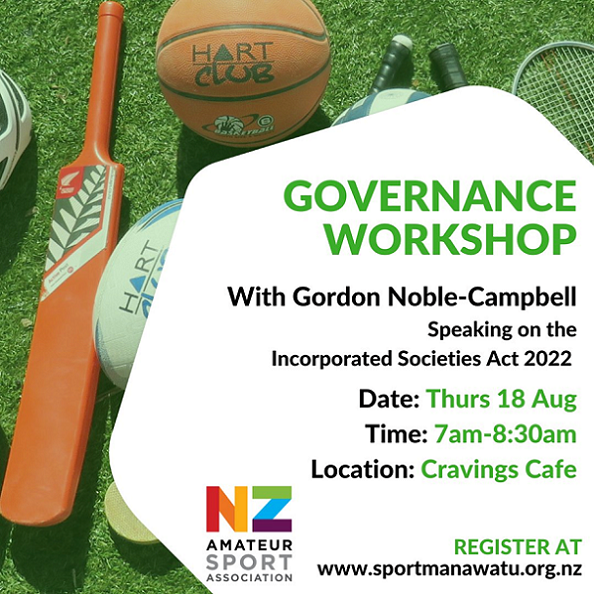
And a reminder for those in the Canterbury region that two seminars will be held in Christchurch at 12.00pm and 5.00pm (at Nga Puna Wai Sports Hub) on Wednesday, 24 August. Further seminars are being planned including for Upper Hutt City, with repeat seminars (owing to demand) also being scheduled in early September for the Wairarapa and Wellington regions.
Incorporated Societies Act 2022 – An Important Update For All Clubs ...
From October 2023, societies that are not registered charities will be required to use the External Reporting Board (XRB) accounting standards when preparing their financial statements, unless they qualify as a “small society” as defined in section 103 of the new Incorporated Soceities Act 2022. You can read more about XRB standards, here.

(XRB accounting standards will apply for clubs which are not "small societies")
A sport club can be classified as a "small society" if: (i) in each of the two preceding accounting periods of the society, the total "operating payments" of the society are less than $50,000; and (ii) as at the balance date of each of the two preceding accounting periods, the total current assets of the society are less than $50,000; and (iii) at the balance date of the accounting period, the society is not an entity described in section LD 3(2) of the Income Tax Act 2007.

"Small societies" can carry on preparing their financial statements as they have always done under the (now repealed) 1908 Act. While all sport clubs should seek specific accounting advice regarding their finances, by way of additional explanation, "operating payments" are all payments made by an entity other than "capital payments". "Capital payments" are defined as payments for the purchase of a resource with a life expectancy of greater than 12 months.
2022 National Sport Club Survey Commences On Thursday ...
Is your club registered to participate in the 2022 National Sport Club Survey? This year’s survey focuses on leveraging the women's world cups being hosted in New Zealand, club/council interaction and on the impacts of the new legislation affecting all community sport clubs. To register your club to participate in the survey, contact support@asa.org.nz.
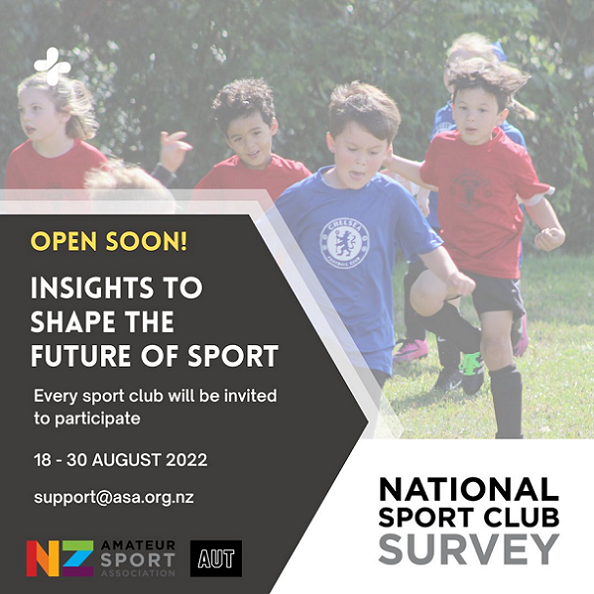
Survey participants who also complete the Dynasty Sport section of the survey will be in the draw to win $500 toward sport gear supplied by Dynasty Sport. The Association acknowledges the support of all its sponsors and supporters and is delighted that Dynasty Sport continues to be a key sponsor of this national project which is focused on the well-being of our sport club community. The Association also thanks Forsyth Barr and Pinnacle Corporation for their support.
"Affordable Sports" Campaign Gathers Momentum ...
It’s been a tough couple of years for youth and more needs to be done to provide them with opportunities for the fun, social engagement and physical benefits of participating in community sport through their local clubs, according to Association Vice-President, John Morrison.
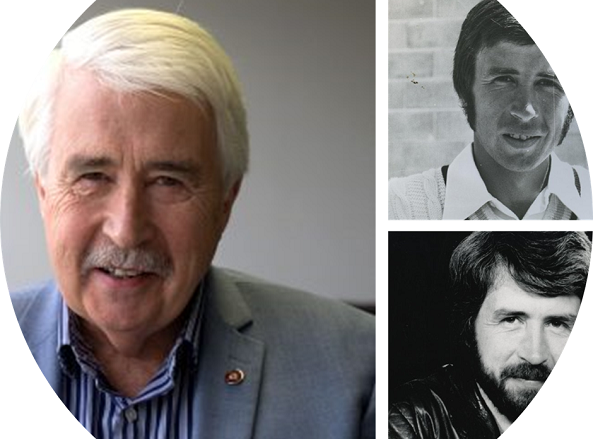
(John Morrison notes it’s been a tough couple of years for kids’ participation in sport)
Morrison who is the former chair of the Sport and Recreation portfolio at the Wellington City Council, has joined the "Affordable Sports for Greater Wellington" campaign as the Association’s representative. Following recent reports that six sport codes in the Wellington region are paying over $2 million annually for the hire of council facilities, Morrison suggests that this sum, while a significant financial burden to community sport organisations, is only a relatively minor line item when spread across regional Council budgets.
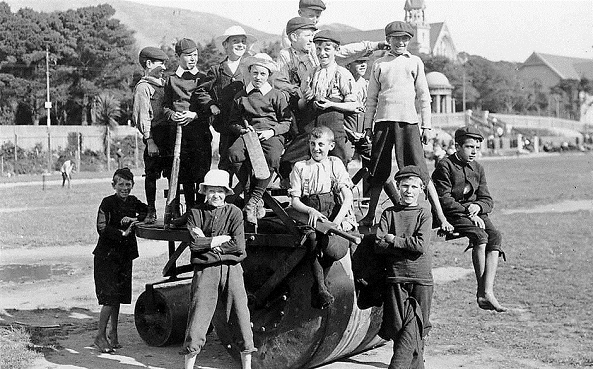
(Ratepayers should not be subject to usage fees on facilities they own debt-free)
With New Zealand’s cost-of-living crisis placing increasing burdens on households, Morrison says that sport club subscriptions paid by families could be lowered by up to 50%, if the impost of paying for use of ratepayer-owned facilities was removed. The Association fully supports the goals of the Affordable Sports for Greater Wellington campaign and sees the upcoming local body elections as an important opportunity to influence future Council decisions for the benefit of local sport communities. You can read more here.
Future Of Community Clubs The Focus Of New Rugby Project ...
New Zealand Rugby has launched a new two-year initiative to strengthen community rugby clubs around the country. General Manager Community Rugby Steve Lancaster said the project had been identified as a key priority to grow the sport in the long-term. “Rugby clubs are absolutely central to our game, now and into the future. We want to support them to remain relevant in their communities, be prepared for challenges and opportunities, and ultimately have a clear roadmap for the next 25 to 50 years.”
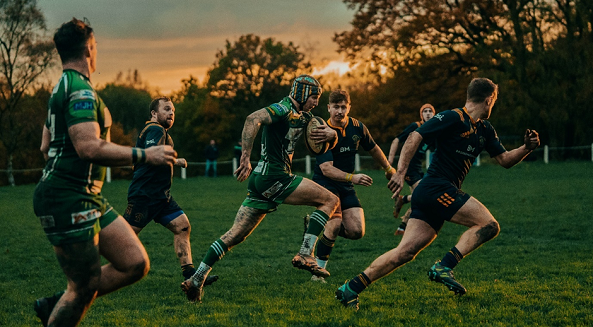
(New Zealand Rugby acknowledges that clubs will continue to be part of the game's DNA)
The project aims to provide approximately 450 junior and senior rugby clubs with strategic guidance, support, and resources to meet changing regional and local needs. To identify the current and preferred future state of rugby clubs, the project will focus on seven key areas, including strategy, finance, environment, participation, club capability, operations, and facilities. This week, the Association met with Tina Arlidge, Club Development Project Manager for New Zealand Rugby, to explore ways that the Association can potentially support this project.
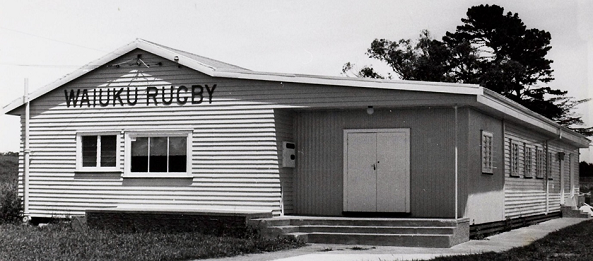
(The Waikuku Rugby clubrooms were built in 1955, with the club incorporated in 1956)
From The Archives ...
NOTED SWIMMER
NEW ZEALAND HERALD, VOLUME LXXVI, ISSUE 23410, 28 JULY 1939, PAGE 13
“Born at Norfolk Island, Mr. Champion came to Auckland as a youth. His entry into competitive swimming was auspicious and his success meteoric. The little-known youth was invincible, winning all available free-style titles [in 1901]; 100 yards, 220 yards, 440 yards, 880 yards and one mile. He was rewarded by being selected for the Australian and New Zealand championship meeting, held in Melbourne. He again won all these titles in 1908, 1912, 1913 and 1914. No other New Zealand swimmer has made a clean sweep of national championships so often. In 1910 he won all but the 100 yards and 880 yards titles, and in 1911 the 100 yards race was the only event of which he was not the winner.”
Malcolm Eadie Champion was born on 12 November 1882, the son of Captain William Nile Champion, (a well-known seafarer, who was once the master of Bishop Selwyn’s missionary vessel "Undine"), and Sarah Clara (nee Quintal). Standing over six feet tall, Champion was an “accidental champion” who arrived in New Zealand in 1900 as a 17-year-old. While swimming in Auckland harbour, he was persuaded to have a race with George Tyler, the Auckland swimming champion of the time, (who was later one of the famous 1905 “Original” All Blacks). Champion had no idea of his true ability as an athlete, and, although handicapped by having to make a push-off start through being unable to dive, he surprised everyone by defeating his opponent. As noted above, he went on to become a true New Zealand sporting champion.
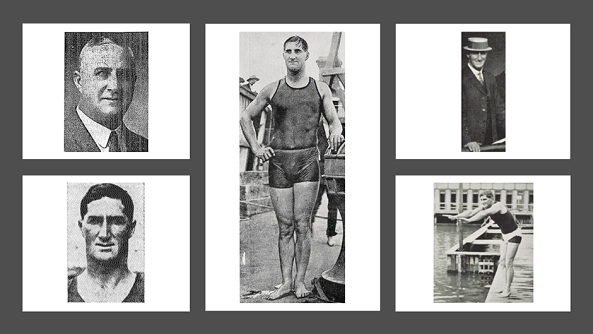
(The many faces of New Zealand’s famous swimming champion, Malcolm Champion)
Champion married Rose Ethel de Maus on 9 October 1902 in Dunedin, with whom he had a daughter (born on 18 May 1911), Edna Ruth Winifred Matson Champion, who began competitive swimming as a five-year-old. A member of the Mt. Eden swimming club, Edna went on to break the NZ intermediate record in 1928 for both the 220 yards and 440 yards. She announced her retirement from competitive swimming the following year.
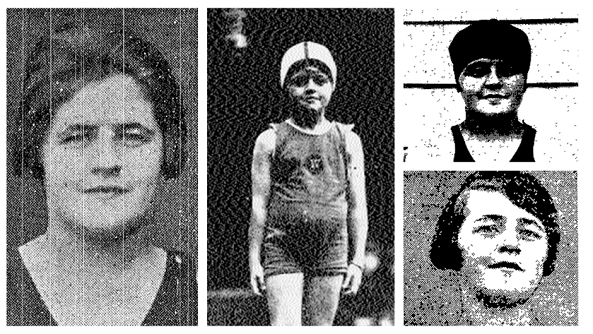
(Edna Champion, also a New Zealand swimming champion, in her father’s footsteps)
In 1911, to celebrate the coronation of His Majesty King George V and Queen Mary, Champion was selected to travel to London to compete in the Festival of Empire Games at Crystal Palace. While he failed to win any titles, during his visit he won the long-distance championship of England. and the half-mile championship of the Thames. The following year he swam at the Olympic Games in Stockholm. As a member of the Australian and New Zealand team, he was victorious in the 800 metres relay in the then world's record time of 10m 11 secs.
Malcolm was enlisted with the 53rd reinforcements in June 1918, while employed as “Superintendent of Baths” by the Auckland City Council, (living at the Tepid Swimming Baths at 100 Customs Street West). He did not see active service before being demobilised in November 1918 after a training period at Trentham Camp. In 1920, Malcolm’s father’s vessel the "Jubilee" went missing enroute to Niue and Malcolm joined the unsuccessful Pacific search for the schooner. A trainer of many champion swimmers, for which he received unwarranted public criticism in 1930, Champion died on 27 July 1939, aged 55 years.
The Final Word ...
"These Games have been bold, buzzing and absolutely brilliant."
(Louise Martin, President, 2022 Commonwealth Games Federation)